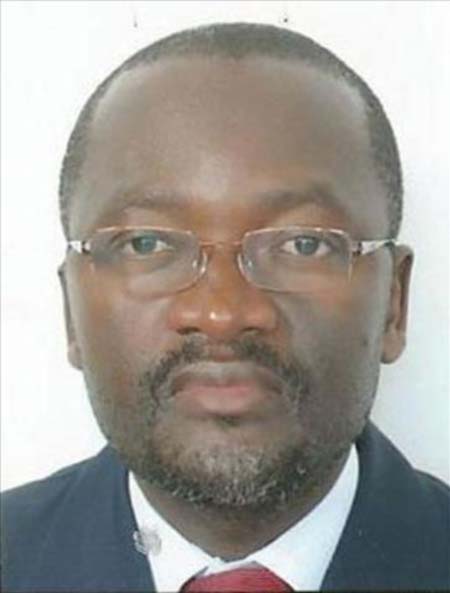
Ousman Badjie is facing a five-count charge ranging from economic crime to negligence of duty.
Delivering his ruling, Justice Abi said the accused person was arraigned, on account of information before the court, on 15 December 2014 and is standing trial on two counts of economic crimes and three counts of negligence of official duties.
He added that in proving their case, the state called three witnesses and tendered exhibits A to D1.
At the closure of the prosecution case on 24 March 2015, the defence counsel LS Camara informed the court that he was making a no-case submission on behalf of the accused.
The accused was charged with four counts of various offences ranging from economic crimes to negligence of official duty.
The consistent evidence before the court was that the accused had no responsibility over Faisal Bojang, even under the Foreign Service Regulations, and that Faisal Bojang was under the supervision of the deputy Head of Mission.
Counsel, the judge went on, also submitted that the prosecution had woefully failed to demonstrate how it was the responsibility of the accused to ensure none of that happened, when it was not his (the accused person’s) responsibility.
Counsel enjoined the court to uphold the no-case submission, with regard to “the inability of the prosecution” to put forward evidence that met the minimum standard.
In reply to the submission, according to the judge, state counsel AM Yusuf stated that section 3 of the Economic Crimes (Specified Offences) Act provides that the Act shall be read together with the provisions of the criminal code.
AM Yusuf said section 2(a) of section 3 provides that sections 22, 175A-175D and 238 of the criminal procedure code shall not apply.
AM Yusuf further submitted that as they all know, the no-case-to-answer submission was envisaged in section 166 of the criminal procedure code, which applies only to proceedings before the subordinate courts and, therefore, even without section 3 of the Economic Crimes Act, the application would still be incompetent because “that is a procedure meant for the subordinate court”, and that the accused never cited any law when he made his submission.
He urged the court to overrule the submissions of the counsel, and called on the accused to enter his defence.
Justice Abi said one major issue arising for determination in the application was whether the practice of submission of no-case-to-answer is applicable to the high court, as seen from submissions above.
He said AM Yusuf submitted during his reply that there is no provision in the high court as section 166 of the CPC, which provides for the practice, applies only to subordinates courts, while LS Camara submitted that the no-case submission in the high court is a common law principle which comes under section 7(d) of the constitution of The Gambia.
According to Justice Abi, a submission of a no-case-to-answer might properly be made and upheld, when there had been no evidence to prove an essential element of the alleged change; or when the evidence adduced by the prosecution had been so discredited as a result of cross-examination or is so manifestly unreliable that no reasonable court could convict on it.
“I hereby find and hold that the practice of no-case-to-answer submission is known to the high court in this jurisdiction, and is widely used pursuant to section 208 of the CPC and I will, therefore, dismiss the learned DPP’s argument on this point as baseless,” he said.
He had no reason to change his mind, he said, adding that he had found and held that the practice known as “submission of no-case-to-answer is widely known and used in the high court of The Gambia though not specifically provided for in the CPC.”
Justice Abi further adduced that one of the cardinal principles in considering a submission of no-case-to-answer is that the trial judge should be brief in his/her ruling, and must refrain from delving into the totality of the evidence or making observations on the facts, so as not to fetter his/her discretion in case he/she would go into considering the substantive case.
It was rightly so because at the stage of a no-case submission, it was not necessary for the judge to determine if the evidence as to whether there was a prima facie case requiring at least some explanation from the accused person, he said.
“Having read the arguments on record, and after listening to and considering the arguments proffered by both the prosecution and the defence, in support of and against the submission of no-case-to answer, I am of the view that at this stage the prosecution has made out a prima facie case requiring the accused to at least offer an explanation.
“I cannot say more than that at this stage. I accordingly dismiss the submission of no-case-to-answer and call upon the accused to enter his defence in this case,” he said.
The case was adjourned to 27 May 2015, for defence.
Read Other Articles In Article (Archive)



